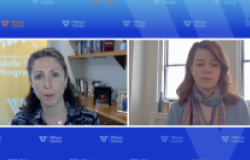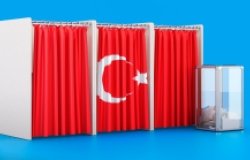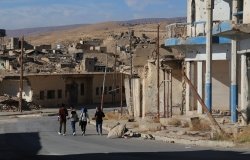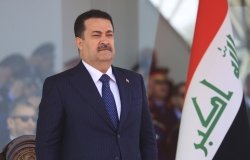Islam and Democracy: The Turkish Model
with Haldun Gulalp, Professor of Sociology, Bogaziçi University (Istanbul, Turkey) and current Woodrow Wilson Center Fellow
Overview
Professor Haldun Gulalp discussed the implications of the coming to power of the "Justice and Development Party" in Turkey. Can Turkey run by a political party that has Islamic roots become a model for democracy? Dr. Gulalp rejected the supposition that Turkey has always been a model for democracy in the region and in the Muslim world. But if the current experiment, namely a "Muslim democratic" government running Turkey succeeds, he said one can then refer to Turkey as a model for democracy in the Muslim world. In the past both the secularists and the Welfare party, when it came to office, tried to impose their
views on the state and society.
He differentiated between Islam and the politics of Islamism. Islam is a religion, while Islamism is a political movement, he said. When the Welfare party (later ousted by the military) came to power in Turkey, it propagated the cause of political Islamism; it was not a pro-democratic movement. The party that is in power in Turkey today, however, is not a political manifestation of Islam, but a modern movement that does not hide the Muslim identity of its leaders and followers, while also accepting the ideas of human rights, individualism and liberalism and the necessity to "negotiate with others," rather than imposing its views from above. Mr.Gulalp believes that if the current experiment in Turkey succeeds, it may become a role model for other governments. The party may appear as "Islamist" to some observers, but it will continue pushing for Turkish membership in the EU, maintain relations with Israel, cooperation with the West and support for the United States in the war with Iraq.
Mr. Gulalp said the majority of Turks do not want a war with Iraq. The view in Turkey is that "it is not our war" he noted. The government and parliament will support the war, but not for economic reasons, as some believe. Turkey had suffered economically from the first Gulf war, and Turkey is concerned about the possibility of a Kurdish state in Northern Iraq and its ramifications for the Kurds in Turkey Dr Gulalp noted. But Turkey will reluctantly be joining a war against Iraq because of its strategic alliance with the US and the support the US has given Turkey in the past including for its membership in the EU. He said that no matter what Turkey does it will be criticized: if it goes along with the US position Turkey will be blamed for selling out to the West, and if it opposes the war Turkey will be accused of turning its back to the West. Dr. Gulalp argued that the Turkish government has so far handled the issue of the war very skillfully and it has adhered to UN decisions, but is also taking into consideration its special relationship with the US.
Documents & Downloads
Hosted By

Middle East Program
The Wilson Center’s Middle East Program serves as a crucial resource for the policymaking community and beyond, providing analyses and research that helps inform US foreign policymaking, stimulates public debate, and expands knowledge about issues in the wider Middle East and North Africa (MENA) region. Read more
Thank you for your interest in this event. Please send any feedback or questions to our Events staff.









